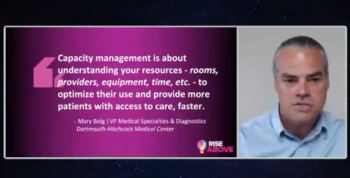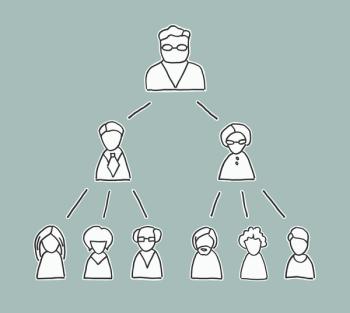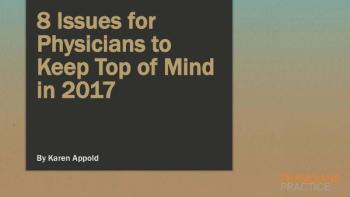
Why the EHR is Not Enough
EHRs have arguably been the largest investment physicians have made in the recent past. Now that the benefits of these systems are being realized, the creation of additional technologies can present even more opportunities to optimize your practice.
EHRs have arguably been the largest investment physicians have made in the recent past. Now that the benefits of these systems are being realized, the creation of additional technologies can present even more opportunities to optimize your practice.
Here’s why other technologies, beyond the EHR, are worth a look.
A healthcare revolution
According to David Kibbe, president and CEO of DirectTrust, a national healthcare alliance supporting health information exchange, and senior advisor to the Alliance for Health IT Innovation at the American Academy of Family Physicians (AAFP), a revolution is at hand and technology is at the epicenter. “The government is pushing everyone to move clinical data electronically across the boundaries of the organization, health IT system, data repositories, and payer systems,” he said.
This interoperability, along with the shift to value-based payment systems are primary motivators for practices to dive into additional technologies. Kippe says the push towards “big data” and quality reporting are more reasons to pursue this ever-widening path.
Increased efficiency, decreased medical errors
Anthony Karem, an internal medicine and pediatric physician in Crestwood, Ky., employs complementary EHR applications in his practice. Increased efficiency and decreased risk of medical errors proved an enticing incentive for him.
For example, his practice utilizes a program that converts faxes directly into the EHR. “Without this, we have to review individual faxes without having the patient information readily available and then a staff member scans it into the EHR,” said Karem. “A lot of steps, a lot of staff time, and more potential for medical records error.”
For other providers, investing in ancillary applications comes out of necessity. “In many cases, a good certified EHR system will help manage the primary documentation and communication needs of any medical practice, but may be lacking in certain areas,” said Jeff Loughlin, executive director of the New Hampshire Health Information Organization (NHHIO), a non-profit organization designed to connect healthcare communities for the sharing of patient health information. “Specialized testing, imaging storage and retrieval, or complicated documentation requirements may not be readily available in all systems.”
Keeping costs lows
After investing so heavily in EHRs, physicians may be reluctant to pursue other software applications or technologies. Luckily, there are ways to keep costs low.
“A wide variety of low-cost subscription services are available through cloud-based software computing,” said Loughlin. Local medical societies and other professional organizations may offer volume pricing as well.
Loughlin encourages providers to contact their state’s HIE organization too. “[Providers can] better understand what systems and services are available and get a clear picture of the technology landscape around them to ensure they can easily integrate with the community they serve,” he said.
Steph Weber is a freelance writer hailing from the Midwest. She writes about healthcare, finance, and small business, but finds her passion for the medical field growing in sync with the ever-changing healthcare laws.
Newsletter
Optimize your practice with the Physicians Practice newsletter, offering management pearls, leadership tips, and business strategies tailored for practice administrators and physicians of any specialty.






